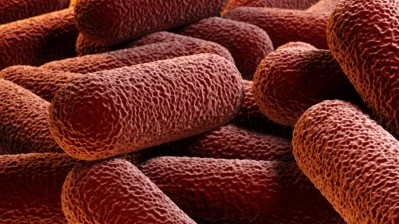One dead in German E. coli O157 outbreak

The outbreak was caused by Shiga toxin-producing (STEC) E. coli O157 and 30 people have fallen ill since December 2016. It is ongoing with the most recent symptom onset for a confirmed case being 13 April.
A total of 14 confirmed, one probable and 15 possible cases have been reported.
Molecular typing revealed close relatedness between isolates from 14 confirmed cases.
The probable case had a PCR-positive stool sample sharing outbreak specific markers but culturing was unsuccessful.
The 14 confirmed cases live in the north-west of Germany and Berlin. The age range is one to 36 and half are male.
A total of 13 developed haemolytic-uremic syndrome (HUS) and needed intensive care treatment and one patient died. None of the cases had a relevant pre-existing illness.
Small number of interviewed confirmed cases
The German outbreak strain has not been detected in other European countries.
The consultant laboratory (CL) for HUS at the University Hospital of Münster and the Robert Koch Institute are involved in the investigation.
Researchers interviewed 11 of the confirmed cases or their parents using a standardised trawling questionnaire.
They identified a number of frequently named items, e.g. minced meat (beef and pork mixed), hot dog-style (Vienna) sausages, commercially available yoghurts or puddings.
Cases and parents also reported having frequently shopped at a supermarket chain which was not named.
A case–control study looked at the association of illness with food items named frequently in the interviews.
Cases had eaten minced meat (beef and pork mixed) significantly more frequently than controls.
Official samples negative
State food safety authorities inspected and sampled minced meat producing plants supplying the supermarket chain and others. All results on production sites, retail level and from regional monitoring programmes have been negative so far.
Trace-back investigations from locations where cases had purchased minced meat or hot dog-style (Vienna) sausages are ongoing.
“Based on the investigations to date, we suspect packaged minced meat (beef and pork mixed) sold at one or several supermarket chains, as the most likely source.
“Other food items purchased at supermarket chains, in particular pre-packaged hot-dog style (Vienna) sausages, cannot be excluded as vehicle at this moment in time, but appear to be less plausible mainly for two reasons: less cases can be explained by this exposure compared to minced meat and the sausages are heated during the production process and therefore contamination appears less likely.”
Researchers said several previous investigations into outbreaks with sorbitol-fermenting STEC O157 have been unsuccessful in identifying the source, despite efforts of health and food safety authorities.
“This is the largest outbreak of SF STEC O157 in Germany since 2002 and it has lasted for more than four months already. We assume that the source of infection may still be active and further cases may still occur.”
Source: Eurosurveillance, Volume 22, Issue 21, 25 May 2017
“Ongoing Haemolytic Uraemic Syndrome (HUS) outbreak caused by sortbitol-fermenting (SF) Shiga-toxin producing Escherichia Coli (STEC) O157, Germany, December 2016 to May 2017”
Authors: S Vygen-Bonnet, B Rosner, H Wilking, A Fruth, R Prager, A Kossow, C Lang, S Simon, J Seidel, M Faber, A Schielke, K Michaelis, A Holzer, R Kamphausen, D Kalhöfer, S Thole, A Mellmann, A Flieger, K Stark






















